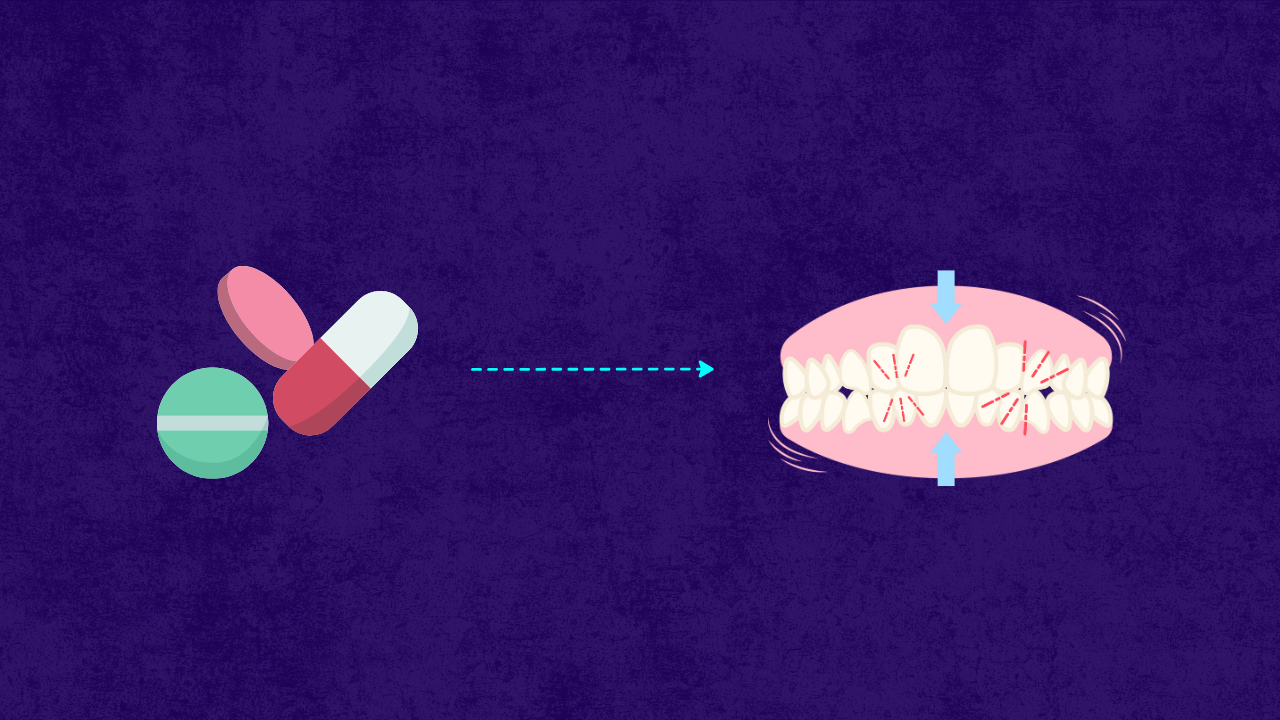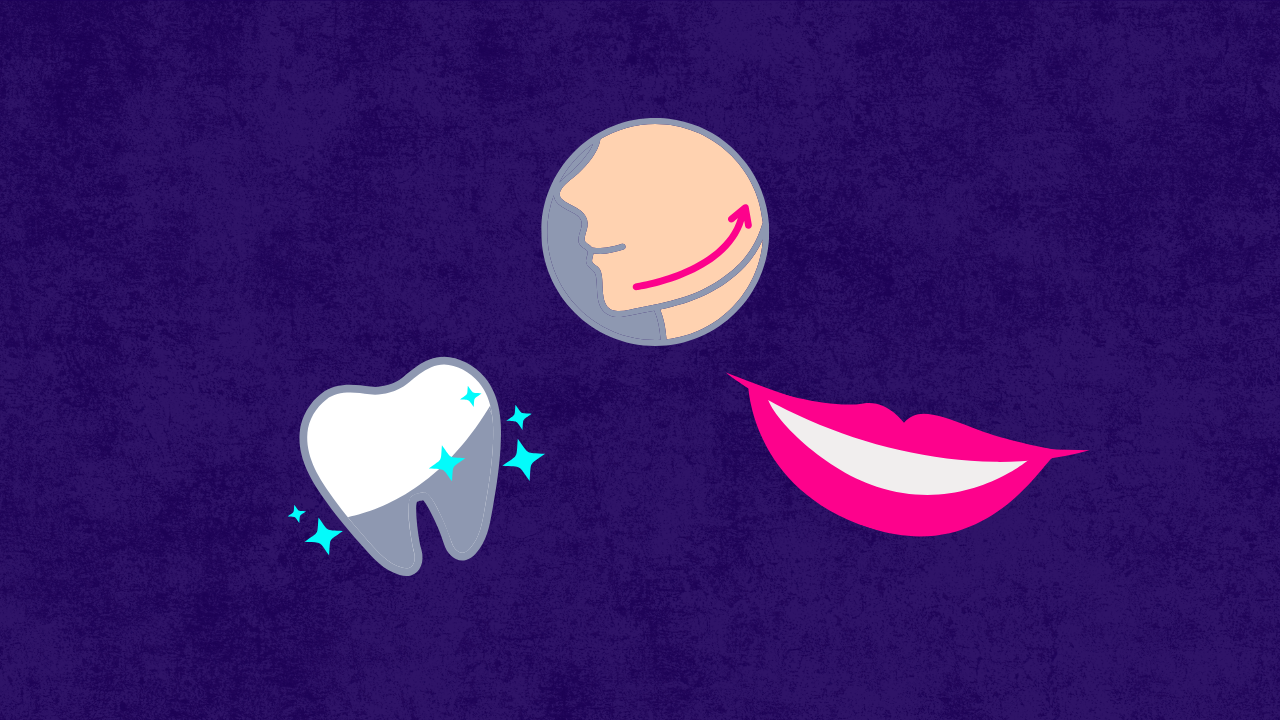Key Points
About the article
This article summarizes data found in 43 publications found on PubMed, Cochrane Library, Science Direct, and Google Scholar about drug-induced Bruxism.
About Bruxism
Bruxism is defined as:
- Teeth grinding
- An oral habit of gnashing, grinding, or clenching the teeth, other than for chewing
- Any such actions that lead to “occlusal trauma” – excessive force that causes such damage to teeth, that they may no longer align properly
Two Types of Bruxism:
Awake Bruxism
- Happens while a person is awake
- “Semi-voluntary activity” (somewhere between a voluntary and involuntary action)
- Attributed to life stress
Sleep Bruxism
- Happens while a person is asleep
- Involuntary activity
- Classified as Sleep-related movement disorder (SRMD) which can disrupt sleep quality and cause daytime fatigue
Bruxism is an important dental issue because it can cause harm in many different areas including:
- Teeth
- Dental Restorations
- Dental Prosthesis
- Bones, muscles, tendons, ligaments and other tissues that are involved in chewing and speech
What Causes Bruxism
Bruxism is believed to have multiple causes, yet those causes are difficult to pinpoint precisely. Some factors that are believed to contribute to it include:
- Teeth contacting each other in a way that makes it difficult to move the jaw smoothly (tooth interference)
- Psychological, social, and environmental factors
- Activity of Basal Ganglia and neurotransmitters in the brain
Neurotransmitters, Drugs that Affect Neurotransmitters, and Sleep Bruxism
- Neurotransmitters may play a role in preventing Sleep Bruxism
- Drugs that interfere with certain neurotransmitters may therefore induce or suppress Sleep Bruxism
- In the field of psychiatry Sleep Bruxism is a known side effect of certain psychotropic drugs including antidepressants
- However professionals in other fields might not immediately consider drugs and medications as potential causes, which could cause delay effective treatment
Other drugs and Sleep Bruxism
- The more alcohol you drink, the higher the risk for Sleep Bruxism
- Those who drink more than 8 cups of coffee per day are at higher risk for Sleep Bruxism
- Smoking seems to increase the risk of Sleep Bruxism although it may not cause it directly
- Meth users are at a high risk for Sleep Bruxism
- Cocaine addicts frequently have severe Sleep Bruxism
- Anticonvulsant medications may increase frequency of Sleep Bruxism
How to Assess Sleep Bruxism
- There are no standardized guidelines for evaluating Sleep Bruxism
- Governing bodies propose a combination of self-reports, clinical observation, and confirmation via medical instruments along with an assessment of risk factors and other conditions associated with Sleep Bruxism
Managing Drug-Induced Sleep Bruxism
There is no standard protocol for managing drug-induced Sleep Bruxism however some clinically effective approaches have included:
- Substituting a different medication
- Reducing the dosage of the medication
- Adding a medication that is known to suppress Sleep Bruxism
- Eliminating the medication or drug
Recommendation
- The article goes into great detail about how neurotransmitters may affect Sleep Bruxism, and provides a table of medications that are associated with it.
- If you take antidepressant or antipsychotic medication and want to know whether those medications might be associated with Bruxism, please see the table.
- If you take any medications/drugs that cause or are associated with higher risk for Sleep Bruxism, it may be wise to mention it to your dental/medical professionals so that they may evaluate whether you have Sleep Bruxism and whether medications/drugs are causing or worsening it.
- You may also wish to read the article to more deeply understand the connection between Sleep Bruxism and neurotransmitters.
- As the data concerning drug-induced Sleep Bruxism is still emerging and not all medications/drugs have been studied, you may wish to mention any drugs to take to your health professionals, regardless of whether they appear on the table in the article
How Zerene can Help
Zerene provides clear and valuable data about your Sleep Bruxism habits by measuring it directly in your mouth as you sleep. If you suspect that you have Sleep Bruxism, whether or not it is drug-induced, Zerene may be able to help you to know with more certainty. If you have drug-induced Sleep Bruxism and have changed your medication in order to reduce your Sleep Bruxism, Zerene may be able to help determine whether the change in medication has been effective to that end.
However, Zerene is not meant to replace the expert advice of a medical or dental professional.

